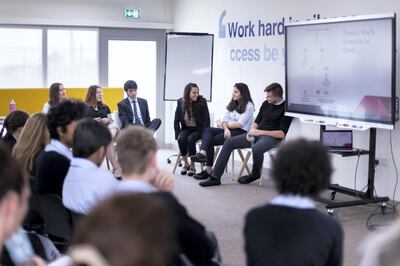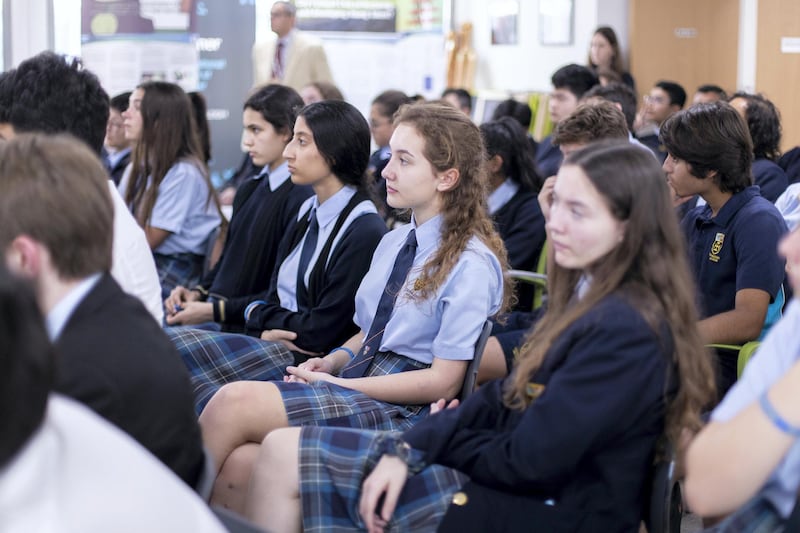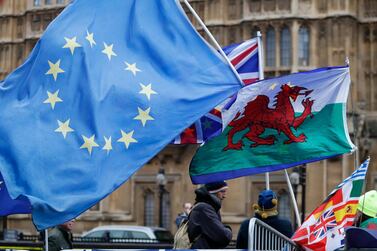Teenagers in the UAE are abandoning plans to study at British universities because of the uncertainty and turmoil created by Brexit.
Senior pupils at Cranleigh Abu Dhabi claimed moving to the country as it left the European Union risked higher fees and as yet unknown visa restrictions.
The politics and economics pupils spoke to The National after British MPs voted to reject Prime Minister Theresa May's proposed divorce deal with Brussels for a second time last week.
Instead, politicians backed seeking an extension to the scheduled departure date, which is currently set for March 29.
“I don’t think I’m going to apply there at all when there might be all these setbacks from Brexit,” said Chloe Depolla, 16, a French national.
“I’d like to take the Eurostar back to France to visit my family. Maybe I might not be able to do that freely. We feel a little bit less welcome.”
The UK is home to the six top universities in the EU, according to Times Higher Education world rankings.
Current EU rules mean university students from member states are charged a maximum of Dh45,000 a year in fees to study at English institutions while those from non-EU countries pay up to four times as much. In Scotland, meanwhile, EU students are not charged any tuition at all.
As the ramifications of Brexit continue to play out, however, it is not known how fee structures will change in the future.
The right for EU citizens to live and work in the UK may also end, further complicating decisions for many.
Katya Vanderbril, 17, a dual Belgian and Italian national, described the situation as “frustrating”.
“We had this idea of going to the UK for university, using our rights as EU citizens and not having to pay international fees,” she said.
“Now, we’ve had to adjust our plans. I’m thinking of going to France instead.
“It’s also not just about university, we have to think about what’s going to happen after with visas. The whole immigrant label is thrown around freely which is a bit dehumanising.”
Meanwhile, Olessia Bernard, 16, who is French, said she was worried about visiting her brother, who is already in the UK.

“I feel like a lot of countries are becoming increasingly divided and there are a lot of tensions,” she said. “I don’t think Brexit is going to help with the problems the world is facing right now.
“From a historical point of view, it kind of looks like history repeating itself. The League of Nations fell apart after countries started leaving, so you get a feeling of deja vu, that the same thing is going to happen again.”
In a presentation to 14 and 15-year-olds at Cranleigh, senior pupils set out the predicted consequences of Brexit for the UK.
Under discussion was the potential for slower economic growth, a loss of global influence and increased control over trade, borders and laws.
At the end of the talk, attended by some 70 pupils, a show of hands revealed no one present believed the UK leaving the EU was a good idea.
Mani Kher, a British 16-year-old at Cranleigh, admitted he felt “embarrassed” by his country as a result of Brexit.
He said he was hoping for a second referendum that could see the result of the first vote reversed.
“I do feel embarrassed by some of the people in my country’s opinion on foreigners,” he said.
“There’s a lot of racist undertones around Brexit. People genuinely believed the UK could become this trading hub, but really, that would still be very far in the future and the road to that would be difficult.
“I’m hoping for a second referendum, because now the people are more educated on it.
“It should be a more accurate reflection of what the country wants and needs.”







